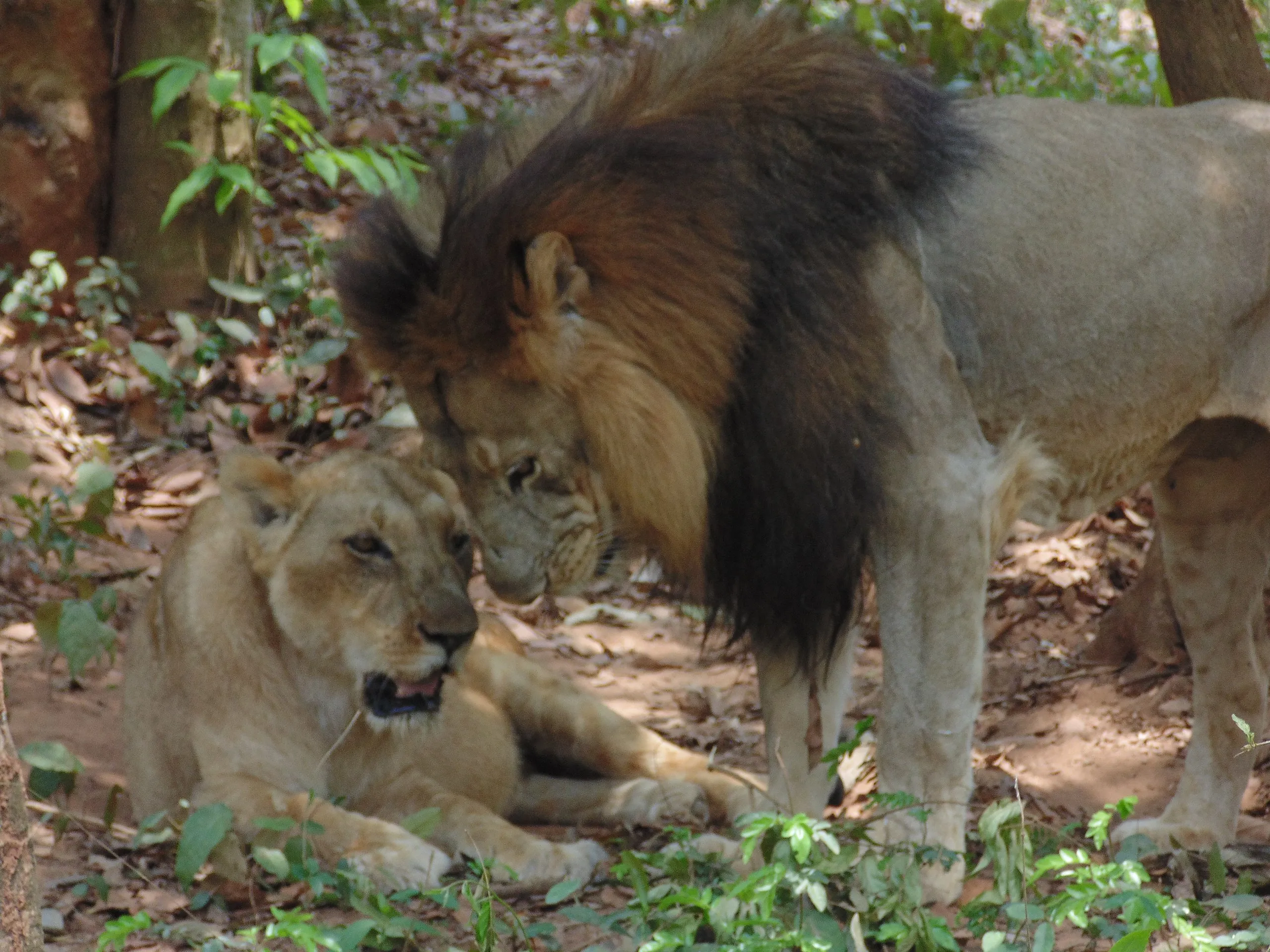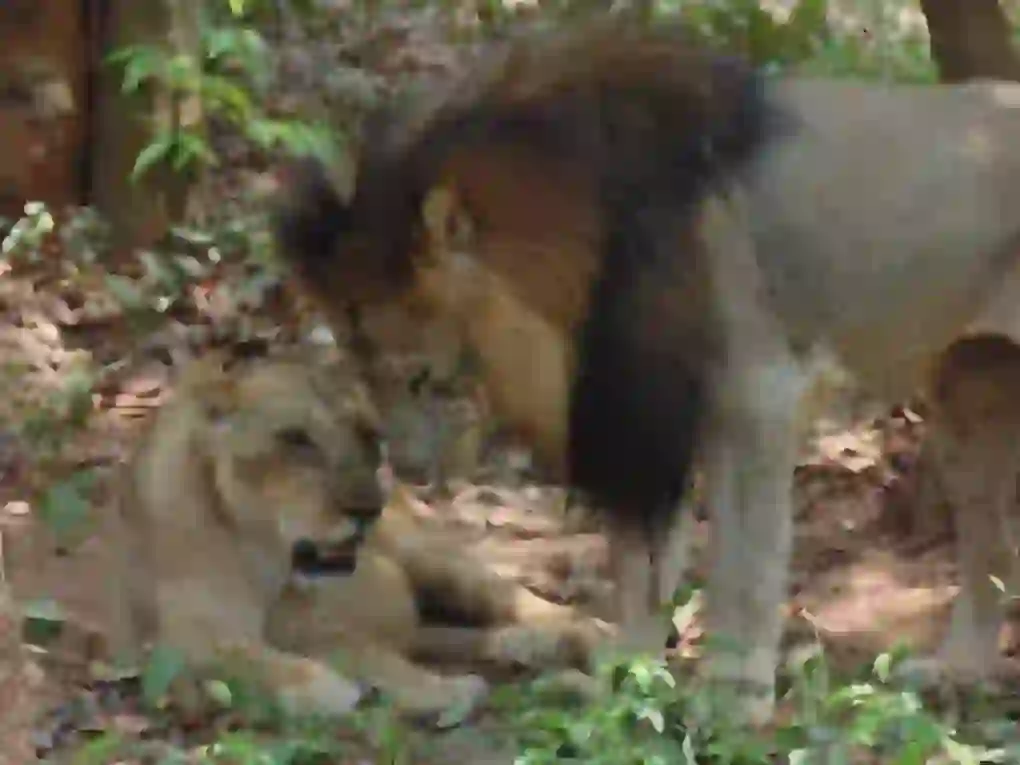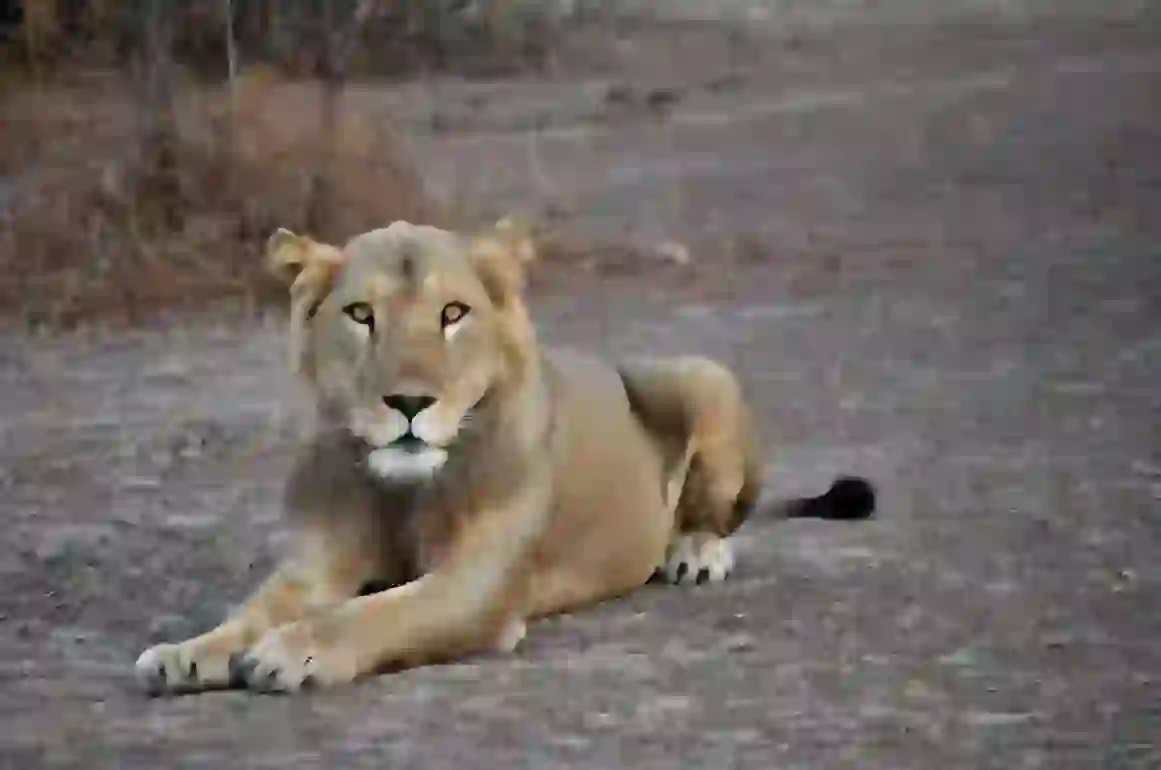
African Lion
African Lion
African Lion
The king of the savanna, the African lion. Its majestic mane and powerful roar are iconic symbols of the African wilderness. These skilled hunters cooperate in groups to survive in the harsh environment. Let's explore the social structure of African lions, their hunting strategies, and the threats they face.
African Lion Basic Infomation

| Property | Value |
|---|---|
| Scientific Name | Panthera leo leo |
| Taxonomic Status | SUBSPECIES |
| Rank | SPECIES |
| Vernacular Names | African Lion |
| Kingdom | Animalia |
| Phylum | Chordata |
| Class | Mammalia |
| Order | Carnivora |
| Family | Felidae |
| Genus | Panthera |
| Habitats | Savannas, grasslands, and forests throughout sub-Saharan Africa |
| Descriptions | The African lion is a subspecies of lion widely distributed in sub-Saharan Africa, adapted to life in savannas, grasslands, and forests. They are social animals that form groups called prides and cooperate in hunting and raising their young. |
| Conservation Status | Endangered |

Size
They measure about 2.5 to 3.0 meters in length (including tail), with males weighing around 150 to 250 kilograms and females weighing 120 to 180 kilograms. Males are larger and more powerfully built than females.

Lifespan
They live for about 10 to 14 years in the wild.

Distribution
They are widely distributed throughout sub-Saharan Africa, inhabiting a variety of environments including savannas, grasslands, and forests.
African Lion Q&A

What kind of lion is the African lion?
The African lion is the most well-known and widely distributed subspecies of lion. They are known for living in groups called prides on the savannas and grasslands.
Male African lions are characterized by their majestic manes around their necks. The mane is a symbol of the male's strength and also plays a role in attracting females. The color and size of the mane vary depending on the individual, age, and habitat.

What is a lion pride?
African lions live in groups called 'prides.' A pride typically consists of one male, several females, and their cubs.
Pride members cooperate with each other to hunt, raise their young, and defend their territory. The size of a pride can vary from a few individuals to several dozen. The leader of the pride is the strongest male lion. He must fight other male lions to protect his pride and earn the right to mate with the females.

What do African lions eat?
African lions are carnivores and primarily prey on large herbivores like zebras, wildebeest, buffalo, and giraffes. They hunt in groups, chasing their prey and bringing it down.
Female lions are the primary hunters. They are excellent hunters and work together to corner their prey. Male lions do not usually participate in the hunt, preferring to steal kills or defend them from other predators. Lions may also eat birds, reptiles, and fish. In the winter, when food is scarce, they may scavenge on carrion.

[Quiz!] What is the success rate of an African lion hunt?
Although African lions are known as skilled hunters, their hunting success rate is actually not that high. Their hunting success rate is said to be around… 20-30%!
This is because the animals they prey on also have various strategies to escape from lions. For example, zebras use their black and white stripes to confuse the lion's vision, making it easier to escape. Wildebeest form large herds to reduce the chance of any individual being targeted by a lion. Lions use various strategies to increase their hunting success rate, such as hunting in groups, ambushing, and adapting to the prey's tactics.

[Quiz!] What are the purposes of a male African lion's mane?
The mane of a male African lion serves several purposes:
・Attracting females: The mane is a symbol of the male's strength, and females prefer males with large, impressive manes.
・Intimidating other males: The mane also serves as a warning to other male lions. Males with larger manes appear stronger and more intimidating.
・Protecting the neck: The mane helps protect the lion's neck during fights with other lions. A thicker mane provides better protection against attacks to the neck.
The mane is a very important feature for male African lions.

[Quiz!] Are African lions endangered?
Unfortunately, African lions are classified as endangered. Their population has declined by about 40% in the past 20 years. The main reasons for this are:
・Habitat loss: Human development is destroying their savanna and grassland habitats.
・Poaching: Their bones and fur are highly valued in the illegal wildlife trade.
・Human-wildlife conflict: Lions that attack livestock or humans are sometimes killed.
To protect African lions, we need to conserve their habitat, stop poaching, and find ways for humans and lions to coexist.

Would you like to become a part of the 'Animalbook.jp'?
Turn your knowledge into Q&A and share it with the world. ※Publication will be activated after purchase. Let's share information together!
African Lion Type of List

Efforts to Protect African Lions
- Habitat conservation: National parks and protected areas are established to protect lion habitats.
- Strengthening anti-poaching patrols: Patrols and surveillance activities are being intensified to arrest poachers and stop illegal trade.
- Coexistence with local communities: Efforts are being made to reinforce livestock enclosures, install lion-proof fences, and educate local communities about lion ecology and the importance of coexistence to prevent lions from attacking livestock.
- Promoting ecotourism: By organizing lion-watching tours and generating income from tourists, funds are raised for lion conservation efforts. Ecotourism also helps to raise global awareness about the importance of lion conservation.
Information
Congratulations! You are the first commenter!

Create Your Favorite List!
African Lion
Save the animals you love! Build your own list to quickly revisit your favorites later.

Would you like to leave a comment?
※Please note: This is for the purchase of rights to post comments within the article.
Find Your Favorites!
Our shop offers a unique and attractive selection of goods themed around various animals.
African Lion References
African Lion Introduction of media used

Prajwal Padhi, CC BY-SA 4.0, via Wikimedia Commons

Micho2020, CC BY-SA 4.0, via Wikimedia Commons

Help Enrich Our Animalbook.jp with Your Media!
We are constantly looking to expand and enrich our Animalbook.jp with amazing photos and videos of animals. If you have any media that you'd like to share, please contribute and help us showcase the beauty and diversity of the animal kingdom. Your submissions will be credited and featured in our encyclopedia, reaching a wide audience of animal lovers.


















